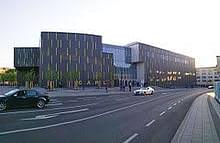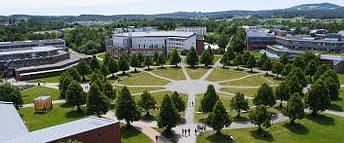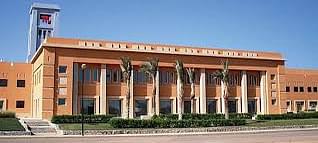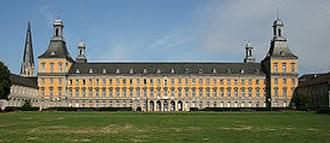Master of Science [M.S] (Bioengineering)
€15,596/Yr
Tuition Fees
| Year | 1st Year Fees |
|---|---|
| Tuition Fees | €15596 (EUR 15596) |
Previous Year Tuition Fees
| Year | 1st Year Fees |
|---|---|
| 2022 | €15782 (EUR 15782) |
2 years standard period of study to obtain a Master of Science (M.Sc.); a total of 120 credit points (analogous to the European Credit Transfer and Accumulation System - ECTS) must be acquired. The individual length of study may deviate from the standard length of study.
Course structure
- Compulsory subject: process and plant engineering
- Elective area: Biopharmaceutical processing methods, biotechnological substance production, integrated bioprocesses, selected formulation technologies, kinetics and catalysis, particle technology, numerical flow simulation, thermodynamics III, physical chemistry, thermal transport processes
Eligibility & Entry Requirement
Academics
The prerequisite for admission is a completed bachelor's or diploma degree from a recognized university in bioengineering or a related course. No minimum grade is required.
Although no maximum number of places (NC) has been set, this does not mean that all applicants will receive a place. In previous studies, certain coursework and examinations must have been completed to a certain extent (LP or credit points), which roughly correspond to those of the bachelor's degree in bioengineering at KIT. To be expected:
- at least 40 CP "Mathematical & Scientific Basics"
- at least 15 CP "Engineering basics"
- at least 20 CP "Thermodynamics & Transport Processes"
- at least 12 CP "Process Engineering Basics"
- at least 20 CP in the subject "Biology and Biotechnology"
- a bachelor’s thesis or an independent scientific work of a comparable scope with at least 12 CP
Language Proficiency
In order to be able to start a German-language course, foreign applicants must prove that they have the appropriate language skills. For the application you need at least B1 level knowledge. All certificates are accepted, but a certificate of participation in the B1 course is also sufficient.
TOP Scholarships
| Scholarship name | Award amount | Eligibility |
|---|---|---|
| - | - | - |
| - | - | - |
| - | - | - |
Key Resources for Your Study Abroad Journey
Course Guides
MA in Germany: Tuition Fees for 2023, Top Universities, Job Opportunities, Scholarships
Career and Placement after Course
- Graduates of the master's program are qualified for responsible work in industry, technical services and science. If you are suitably qualified and inclined, you can gain further qualifications by doing a doctorate or take up a challenging job in industry.
- The application of biotechnological processes is spreading in different branches of industry, so that graduates have a wide range of professional fields open to them, e.g. in the energy, pharmaceutical and cosmetics industries, in food production, medical technology and in waste treatment and water treatment. The activities can be found in quality control, project management, production planning, product development, teaching and research.
Scholarship Grants & Financial Aids
| Name | Scholarship Per Student | Level of Study | Type | |
|---|---|---|---|---|
| Deutschland Stipendium Program | Scholarship per student€ 4,363/Yr$4,363 | Level Of StudyBachelor | TypeCollege-Specific | |
| Australian Government Research Training Program | Scholarship per studentVariable Amount | Level Of StudyDoctorate | TypeMerit-Based | |
| Paul Foundation scholarships | Scholarship per student€ 20,174/Yr$20,174 | Level Of StudyDiploma | TypeMerit-Based | |
| Axol Science Scholarship | Scholarship per student€ 2,000/Yr$2,000 | Level Of StudyBachelor | TypeCompany-Sponsored | |
| Gyandhan Scholarship | Scholarship per student€ 1,222/Yr$1,222 | Level Of StudyMaster | TypeMerit-Based | |
| MAWISTA Scholarship | Scholarship per student€ 6,691/Yr$6,691 | Level Of StudyBachelor | TypeEasy-to-Apply |
Similar Colleges


RWTH Aachen University


University of Augsburg


University of Bayreuth


Free University of Berlin


Humboldt University of Berlin


Technical University Berlin


Bielefeld University


Ruhr University Bochum

.png?h=45&w=45&mode=stretch)

























Comments